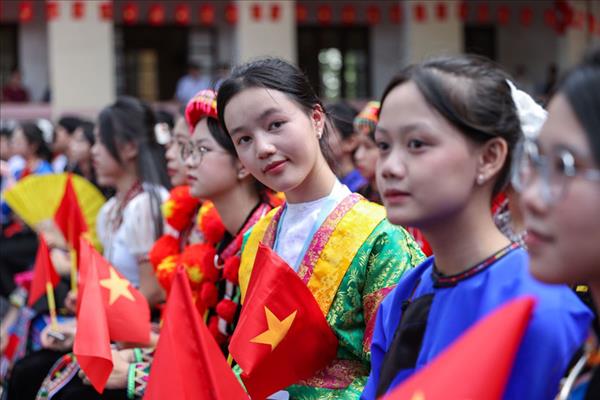Flowers made her remarks while talking to the press regarding a campaign to enhance public awareness of women and children protection and spread the message of zero tolerance for violence against them.
Co-launched by the Vietnamese Ministry of Labour, Invalids and Social Affairs (MoLISA), UN agencies, and the Australian Aid on July 5, the initiative was built on a 2020 campaign to raise public awareness and change individual and societal behaviour, helping prevent violence before it begins. According to the organisers, the campaign calls for attention and support from the whole community to create a violence-free environment in families, schools and community as well as on cyber space.
Commenting on the programme, the Chief Representative said UNICEF has been working with the MoLISA to introduce a system-wide approach so that the police know and act on their role, the social workers are in place in communities to identify children and women at risk.
According to her, the organisation has been working with the judges and the court system to ensure that victims receive special protection and are not re-victimised. It has reached out to the communities to raise awareness, to break the silence around abuse, and to ensure that we all stand up to help stop violence.
She also pointed out solutions to the pressing issue, namely breaking the silence, zero tolerance to violence, and a system-wide response.
Flowers noted that in Vietnam, there are an increasing number of one-stop shops where women and adolescents can go if they are being abused, to get the full range of support, as well as shelters where women can take their children to for protection.
The survey on Sustainable Development Goals indicators on children and women in Vietnam for the 2020-2021 period showed that more than 72% of children between the ages of 10 and 14 experienced violent discipline.
Meanwhile, a survey by the United Nations Population Fund (UNFPA) in Vietnam said that in 2019, 62.9% of women in Vietnam experienced one or more forms of violence in their lifetime such as physical, sexual, emotional and economic violence, as well as controlling behaviour by the husband. In addition, violence against women resulted in a deficit of 1.81% of the country's GDP./.

















